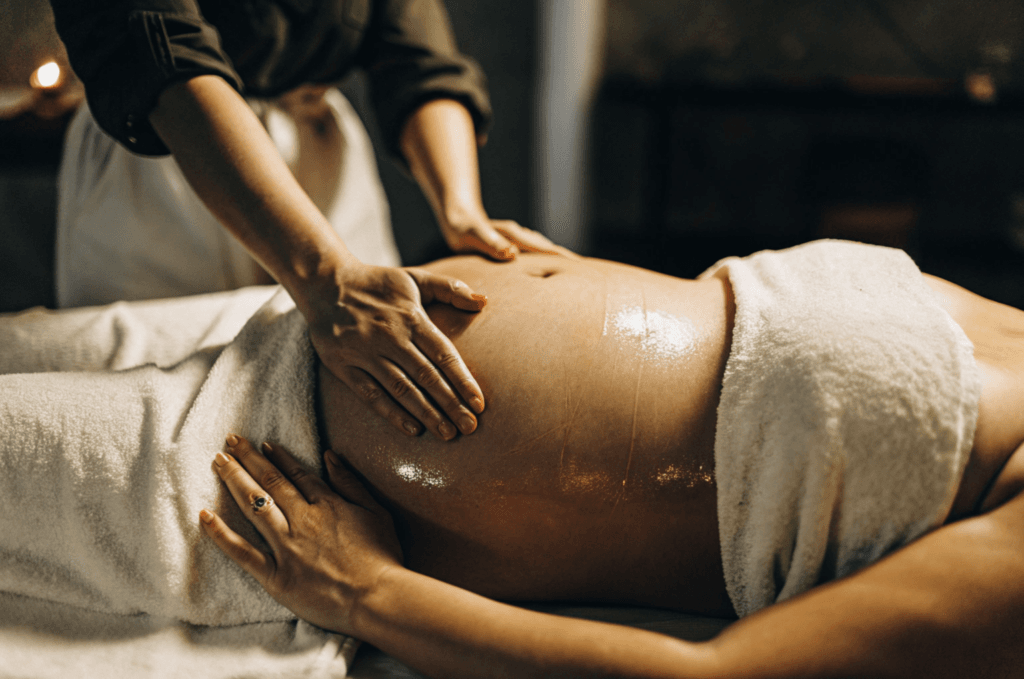
Premature baby massage is a specialized form of massage therapy designed for infants born before the 37th week of gestation. Preemies face unique health challenges and often require additional support to aid their development. This gentle, therapeutic touch can help these infants grow stronger, regulate physiological functions, and support emotional bonding with caregivers. Unlike traditional infant massage, premature baby massage requires extra sensitivity and expertise to cater to the delicate needs of preemies.
Premature infants often encounter challenges such as underdeveloped organs, low birth weight, and heightened vulnerability to infections. Studies reveal that gentle massage plays a critical role in supporting their development by:
Enhancing Weight Gain: Premature babies who receive regular massage therapy often gain weight more quickly. This weight gain is vital for reaching developmental milestones and reducing hospital stays.
Supporting Neurodevelopment: Physical touch stimulates sensory pathways, aiding cognitive and motor skill development.
Stabilizing Vital Signs: Massage activates the parasympathetic nervous system, helping to regulate heart rate, breathing, and digestion.
Massage stimulates the release of growth-promoting hormones like insulin, supporting weight gain and physical development. For premature infants, this progress is essential for strengthening their bodies and improving overall health.
NICU environments can be stressful for preemies. Gentle massage encourages the release of oxytocin, a hormone that promotes bonding and relaxation, reducing stress and anxiety.
Premature babies have underdeveloped immune systems. Massage helps stimulate the lymphatic system, enhancing the body’s ability to fight off infections.
Many preemies experience digestive issues. Massage techniques, especially those focusing on the abdomen, can alleviate gas, constipation, and other discomforts, promoting better digestion.
Massage helps regulate the baby’s nervous system, encouraging restful sleep. Quality sleep is vital for growth, immune function, and cognitive development, making it an integral part of premature baby care.
Premature baby massage focuses on providing touch that is both soothing and safe. The techniques used are specifically tailored to meet the unique needs of preemies:
Feather-Light Strokes: Gentle, light strokes minimize overstimulation and ensure the baby’s comfort.
Slow, Rhythmic Movements: These movements help regulate the baby’s heart rate and breathing, promoting relaxation.
Attention to Breathing and Vital Signs: Caregivers closely monitor the baby’s vital signs to ensure the massage remains calming and safe.
Focus on Key Areas: Massage may concentrate on areas such as the legs, arms, and back, avoiding overly sensitive areas like the abdomen unless advised by a healthcare professional.

Caregivers play an essential role in the success of premature baby massage. Learning these techniques not only enhances the baby’s health but also strengthens the bond between caregiver and child. Skin-to-skin contact, often referred to as “kangaroo care,” complements massage and provides additional emotional and physical benefits for both the baby and caregiver.
Building Confidence: Participating in massage empowers caregivers to take an active role in their baby’s care.
Emotional Bonding: Gentle touch fosters emotional connections, reducing feelings of stress and anxiety for both baby and parent.
Ongoing Support: Caregivers trained in massage techniques can continue to provide this therapy at home, ensuring consistent benefits.

To maximize the benefits of premature baby massage, keep these tips in mind:
Seek Professional Guidance: Work with a trained therapist to learn the proper techniques and ensure safety.
Choose the Right Time: Perform massages when the baby is calm and alert, avoiding times when they are hungry or fussy.
Create a Relaxing Environment: Dim lighting, soft music, and a warm room help set a soothing atmosphere.
Be Gentle: Use light strokes and avoid applying pressure to sensitive areas.
Monitor Reactions: Watch for signs of discomfort and adjust your technique as needed.
In addition to massage, other therapies can further support a premature baby’s development and well-being:
Kangaroo Care: Skin-to-skin contact between baby and caregiver helps regulate temperature, heart rate, and breathing.
Occupational Therapy: Addresses developmental challenges, focusing on motor skills and sensory integration.
Music Therapy: Soothing sounds and melodies can calm preemies and promote neurological development.
Hydrotherapy: Gentle water therapy sessions improve circulation and encourage relaxation.
Premature baby massage is a powerful tool for supporting the health and development of preemies. By addressing their unique needs through gentle touch, this therapy aids in physical growth, emotional bonding, and overall well-being. Ready to support your baby’s development with expert care? Schedule a premature baby massage session today and experience the benefits firsthand.